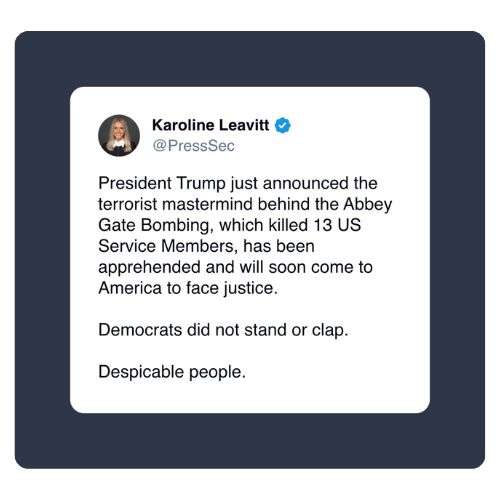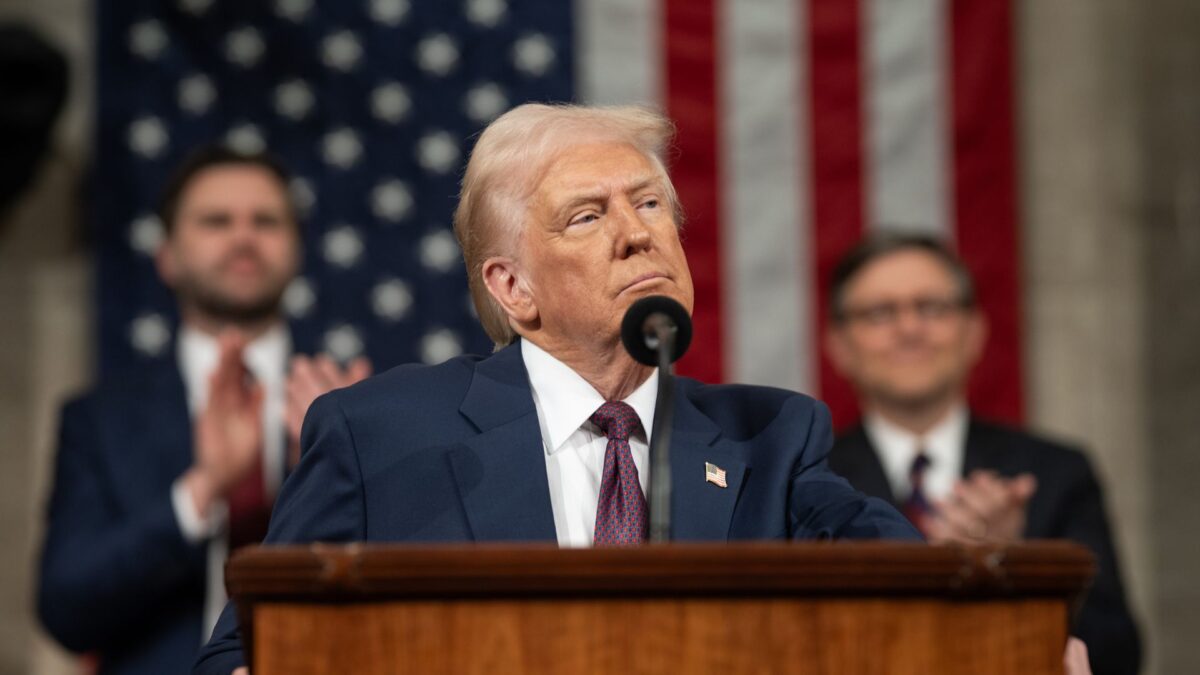In his address to Congress on Tuesday, President Donald Trump announced that the United States had apprehended Mohammad Sharifullah, a man he described as “the person behind” the 2021 Kabul airport attack that killed 13 U.S. service members and hundreds of Afghans.
The Abbey Gate attack — named for its location at Kabul’s airport — was carried out by ISIS-K, the local affiliate of the self-proclaimed Islamic State, on August 26, 2021, during the U.S. withdrawal from Afghanistan.
Minutes after Trump’s announcement, White House Press Secretary Karoline Leavitt claimed in a post on X that Sharifullah was the “mastermind” of the attack.

But the federal government’s affidavit, released on Wednesday, tells a different story. It depicts Sharifullah not as a “mastermind” but as a lower-level operative who provided logistical support for the attack and may not have been fully aware of its details.
Who Is Mohammad Sharifullah?
Sharifullah was charged on Wednesday by federal prosecutors for aiding in the planning of the 2021 Kabul airport attack.
An affidavit submitted by a special agent of the Federal Bureau of Investigation in support of the government’s case states that Sharifullah claims that he was released from prison just two weeks before the Abbey Gate attack and was then contacted by an ISIS-K member to aid in an ongoing plot.

Sharifullah says he was tasked with scouting for a route near the airport where an attacker would go undetected by U.S. or Taliban forces. (The Taliban had taken over Kabul less than two weeks earlier and cooperated with the U.S. on the final withdrawal.)
Importantly, the affidavit suggests that Sharifullah learned of the attack after it took place — on the same day he surveilled the route — and recognized the suicide bomber as “an ISIS-K operative he had known while incarcerated.”
In other words, Sharifullah wasn’t aware of when the attack would take place and who the attacker would be. That’s not uncommon in such operations as information is often compartmentalized internally. But it’s a strong indication that Sharifullah — at least at the time — was a low-level figure.
Indeed, in April 2023, the Pentagon said that the Taliban killed the actual mastermind of the Abbey Gate attack in an independent operation. The Taliban and ISIS-K are rivals.
The Russia Factor
Trump’s exaggeration of Sharifullah’s role is hardly surprising. He has a well-documented history of making grand pronouncements and playing fast and loose with the facts. His address to Congress marked his first major speech since returning to office, and he needed to pair it with a big win.
The spectacle surrounding Sharifullah’s arrest also fits neatly into two pillars of Trump’s second-term agenda: gutting the U.S. bureaucracy and resetting relations with Russia.
President Trump continues to sound like candidate Trump, keeping up his attacks on the Biden administration. The chaotic U.S. withdrawal from Afghanistan remains one of his go-to lines of attack against his predecessor.
That rhetoric allows Trump to maintain the heat against the federal bureaucracy — including the military — as he seeks to purge it of remnants of the ancien regime and stack it with loyalists.
Trump has called for the firing of “every single one” of the generals involved in the withdrawal.
As for the Russia angle, FBI special agents state that Sharifullah acknowledged providing video instructions to two gunmen involved in the 2024 Moscow concert hall attack by ISIS-K, which left over 100 dead.
Holding someone accountable for one of the worst terrorist attacks in Russian history may help move Trump’s pivot to Russia forward.
Arif Rafiq is the editor of Globely News. Rafiq has contributed commentary and analysis on global issues for publications such as Foreign Affairs, Foreign Policy, the New Republic, the New York Times, and POLITICO Magazine.
He has appeared on numerous broadcast outlets, including Al Jazeera English, the BBC World Service, CNN International, and National Public Radio.



